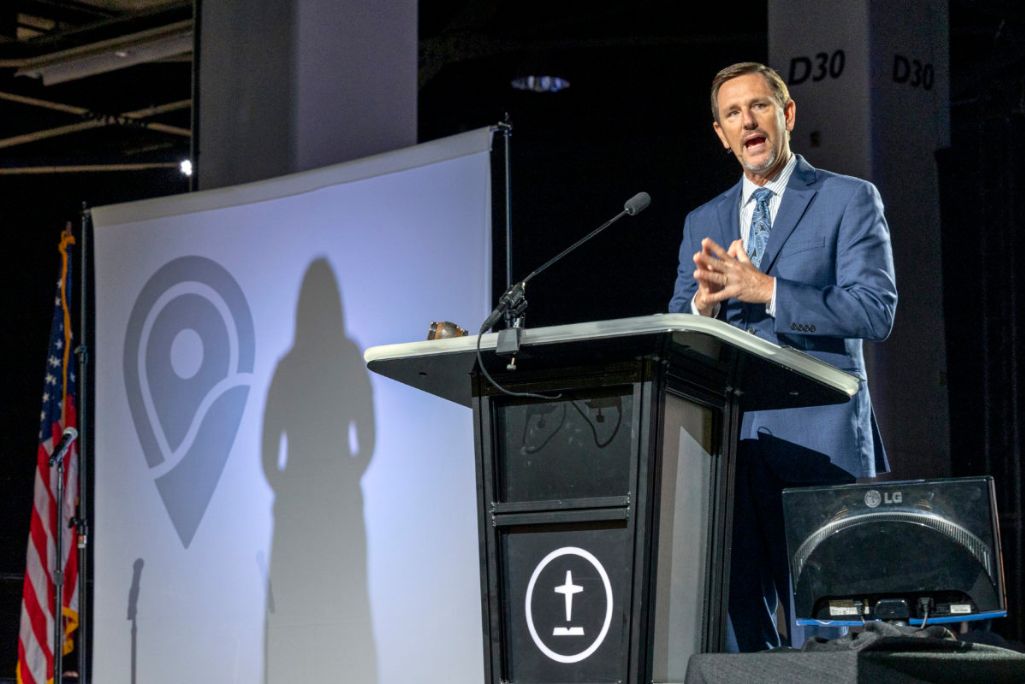The trumpets blared as the covered wagon passed through the city gate. Thousands lined the streets to catch a glimpse of their hero, many more waving pictures of him from windows and rooftops. It was the evening of Wednesday, April 16, 1521, and Martin Luther was entering the city of Worms.
It looked like a triumphal entry. Yet Luther knew where triumphal entries could lead. The reality was, he was coming to be tried for his life, and, like Jesus, he was expecting death.
|
Michael Reeves |
Teaching that a sinner, merely by trusting Christ, could, despite all his or her sins, have utter confidence before God, he had brought down on himself the fury of the church.
His books had already been thrown onto bonfires, and most expected that in a few days he would be joining them.
Luther, however, was determined to defend his teaching: “Christ lives,” he said, “and we shall enter Worms in spite of all the gates of hell.”
The next day, the imperial herald came to Luther’s lodging to escort him to the trial. The crowds were so dense that he was forced to sneak Luther through some back alleys to the bishop’s palace. Even so, they did not go unnoticed, many scrambling over the rooftops in their eagerness to see.
At four in the afternoon, Luther entered the hall; and for the first time the miner’s son from Saxony, dressed in his humble monk’s habit, faced Charles V, the Holy Roman Emperor, lord of Spain, Austria, Burgundy, southern and northern Italy, the Netherlands and “God’s Viceroy on earth.”
On seeing the monk, the emperor, a fierce defender of the church, mumbled, “He will not make a heretic out of me.”
Luther was ordered not to speak until bidden. Then the emperor’s spokesman, pointing at a pile of Luther’s books on a table in front of him, told him that he had been summoned to see whether he would acknowledge the books that had been published in his name, and if so, whether he would recant.
In a soft voice that people strained to hear, Luther admitted that the books were his. But then, to the shock of all, he asked for more time to decide whether he needed to recant.
It looked like he was going to back down. In fact, Luther had been expecting to deal with specific things he had taught; he had not anticipated that he might be asked to reject everything he had ever written. That needed further consideration.
He was grudgingly given one day to reflect, and after that, he was warned, he should expect the worst if he did not repent.
The following day, it was six in the evening before Luther was readmitted into the emperor’s presence. The hall was packed, and in the gathering gloom torches had been lit, making it stiflingly hot. As a result, Luther was perspiring heavily.
Looking at him, everyone expected an abject apology as he begged forgiveness for his heinous heresy. But the moment he opened his mouth it was clear that was not to be. This time he spoke in a loud and ringing voice. He announced that he could not retract his attacks upon false teaching, for that would give even more rein to those who thus destroyed Christianity.
“Good God, what sort of tool of evil and tyranny I then would be!”
Despite an angry shout of “No!” from the emperor, Luther went on, demanding that, if he be wrong, he be refuted with scripture; then, he promised, he would be the first to burn his books.
For the last time he was asked if he would retract his errors, and then he concluded:
“I am bound by the scriptures I have quoted, and my conscience is captive to the Word of God. I cannot and I will not retract anything, since it is neither safe nor right to go against conscience. I cannot do otherwise, here I stand, may God help me, Amen.”
It was no mere bluster. For Luther, it was the word of God that had freed him and saved him.
He had no other security. But with it, he had the courage to stand when the emperor’s spokesman responded by blasting him with his arrogance for believing he was the only one to know the truth.
Indeed, at that point he did seem to be standing against the whole world.
Two soldiers then escorted Luther from the hall, amid shouts of “To the pyre with him!”
A large crowd followed them to his quarters. When he got there, he raised his hands, smiled and shouted, “I’ve come through! I’ve come through!”; then, turning to a friend, he told him that, even if he had a thousand heads, he would rather have them all lopped off than abandon his gospel.
Back in the hall, the emperor declared that one monk who stood against all Christendom had to be wrong, and therefore he had determined “to stake on this cause my kingdoms and seignories, my friends, my body and blood, my life and soul.”
The lines were drawn. The Reformation had begun. And that evening, Luther had done more than write a page of history; he had thrown out a challenge for every generation.
(EDITOR’S NOTE – This article is adapted from the prologue of The Unquenchable Flame: Discovering the Heart of the Reformation by Michael Reeves, published by B&H Academic. October 31, 2017 marks the 500th anniversary of the day Martin Luther posted the 95 Theses to the door of a church in Wittenberg, Germany.)



